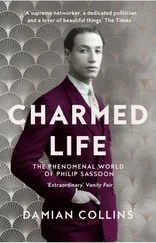The passage from the Mary Kay biography that rang most true to Sarala was this: “The first sale a married woman needs to make is to ‘sell’ her husband on her new job opportunity.”
It wouldn’t really be a job so much as a hobby. For she knew that much of Abhijat’s pride was tied up in the knowledge that he could provide his wife with a life in which she need not pursue employment. Just a few nights out a week, once she established her client base, she explained.
Abhijat had not been as surprised by Sarala’s announcement as she had imagined he would be, and indeed, watching her present the opportunity to him, he had been struck by her confidence, her poise. She would be good at this, he realized, feeling proud of her. “If this is where your interest and passion lead you, then you must follow that,” he told her. And so it was settled.
On the first page of her notebook, in her careful printing, Sarala wrote out “Client Histories.” She looked at the lined page, imagining it full, soon, of useful and valuable information.

Sarala had been nervous before her first party, had prepared for hours, practicing with her flip chart and her case, enlisting Meena as her guinea pig, setting out the trays of makeup with their Styrofoam inserts, Carol looking on to critique her performance.
“Sarala,” Carol pronounced when she had finished, “you are just a natural at this. I’m half afraid you’re going to put me out of business,” she added, smiling at her friend.

For Meena, the first day of school without Lily there beside her had been both strange and exciting. She found herself wondering how Lily was settling in at the Academy. The night before, on the phone, Lily had described her room in the Academy’s dormitory, her impressions of some of the other students, the academic expectations. As Meena had expected, Lily sounded entirely at home there. Already she’d begun to leaf through some of her textbooks, Lily confided, wanting to get a head start. Many were college-level texts, she told Meena, excited.
The girls exchanged plans for the upcoming weekend: Meena cheering at her first soccer game of the season, Lily attending the Academy’s annual Kurosawa retrospective.
“You should come to visit,” Lily said before they hung up. “You’d fit right in.”

With Sarala often busy in the evenings, Abhijat had taken over preparation of the meals, a task he enjoyed and an arrangement the whole family found they preferred.
He planned the meals carefully, retrieving Sarala’s mother’s box of recipes from behind the Tupperware, working his way through each one and interspersing his offerings with experiments — new dishes he discovered, reading carefully each week through “Phyllis’s Fixin’s,” the Nicolet Herald-Gleaner’s cooking column.
These days, in his office in the Research Tower and at home, evenings, Abhijat found that he now read more than he wrote, that he now listened more than he spoke, and each night, he set out on a walk — a stroll through the neighborhood, hands clasped behind his back, his pace slow and measured, taking in the world that had lived and breathed around him for years. Always, he walked at dusk, leaving the house as the sun dropped behind the elementary school. Always, he walked alone, for now it was Sarala who was otherwise occupied, her evenings filled with meetings and parties over which he imagined her officiating with poise and confidence.
He enjoyed these walks, the neighborhood silent, the glimpses of the lives of his neighbors he could snatch as he walked home, their houses lit up from inside; overhead, planes making their way through the dark night sky.
At the Winchester home, Rose otherwise occupied with her campaign work and Lily now off at the Academy, Randolph, too, had begun to take an evening constitutional. It was after a week of these slow, contemplative walks that Randolph noticed another figure engaging in the same evening routine.
“Ah, Mr. Mital,” Randolph said, extending his hand as he recognized Abhijat. “I see we have gotten into the same habit.” The men shook hands. “I wonder,” Randolph suggested, “if we might not take our constitutional together this evening.”
“Yes, why not?” Abhijat answered, pleased to have the company.

The night of the election, Rose, Randolph, and her campaign team gathered at one of the new restaurants on Nicolet’s Main Street to watch the results coming in via the local cable channel. From her seat beside Randolph, Rose sipped a glass of white wine and kept one eye on the television.
Early indications showed Mayor Callahan in the lead, but Rose was confident.
She was certain the electorate realized that Mayor Callahan’s era had come to an end and that it was time for a new type of leadership in Nicolet.
But perhaps because she had so wanted it, had so entirely expected it, Mayor Callahan’s win that night—“another term for Mayor Callahan, our mayor and friend,” the television announcer said, his voice carrying out into the noise of the room — took Rose completely by surprise. The restaurant had grown quiet at the announcement.
Randolph turned to watch her as she took in the news, his arm around her shoulders. He found himself searching her face, her voice, for a sign of what stirred beneath. But she was, as always, composed, unreadable.
Later, after the news had sunk in, after she’d graciously received visitors to their table sharing their condolences, their assurances that their votes had gone to Rose, she’d decided that what she wanted to do was to collect her signs, and to do it alone.
She’d dropped Randolph off at the house and now circled slowly through the neighborhoods of Nicolet. At the height of the town’s division over the collider, Rose’s campaign signs and those of Mayor Callahan had begun to spring up in front yards, sprinkled among the pro- and anti-collider signs, so that each yard was a mingled cacophony of political opinions.
Now Rose just wanted the signs to disappear. She couldn’t bear the thought of her supporters waking in the morning to such a visual reminder that they’d bet on the wrong horse. She wanted no such public reminder of her failure.
The streets of Nicolet’s neighborhoods were quiet and dark. At the first house — not far from their own, where she’d left a concerned Randolph, assuring him that yes, she wanted to do this now, and that yes, she preferred to do it alone — she’d stopped, the car idling on the smooth, dark pavement. The sign caught the light from her headlights. WINCHESTER FOR MAYOR: A NEW ERA FOR NICOLET. She pulled the thin metal frame from the soft earth of the yard, opened the car’s back door, and carefully laid the sign down on the backseat. She returned to the driver’s seat, put the car in gear, and drove on.
It took two hours. She drove through all the neighborhoods of Nicolet she remembered from her girlhood, through those that had sprung up in her absence, and through some newer still even than that. There was something oddly heartbreaking about the number of signs, a physical presence growing behind her as she drove on, of the votes she’d won, of how close she’d come to the thing she’d worked toward and planned for and counted on.

On their first walk together through the neighborhood, Randolph and Abhijat had found themselves mutually delighted by one another, Randolph fascinated by the latest theory Abhijat was puzzling his way through, and Abhijat by Randolph’s thrilling stories of adventure.
Читать дальше













